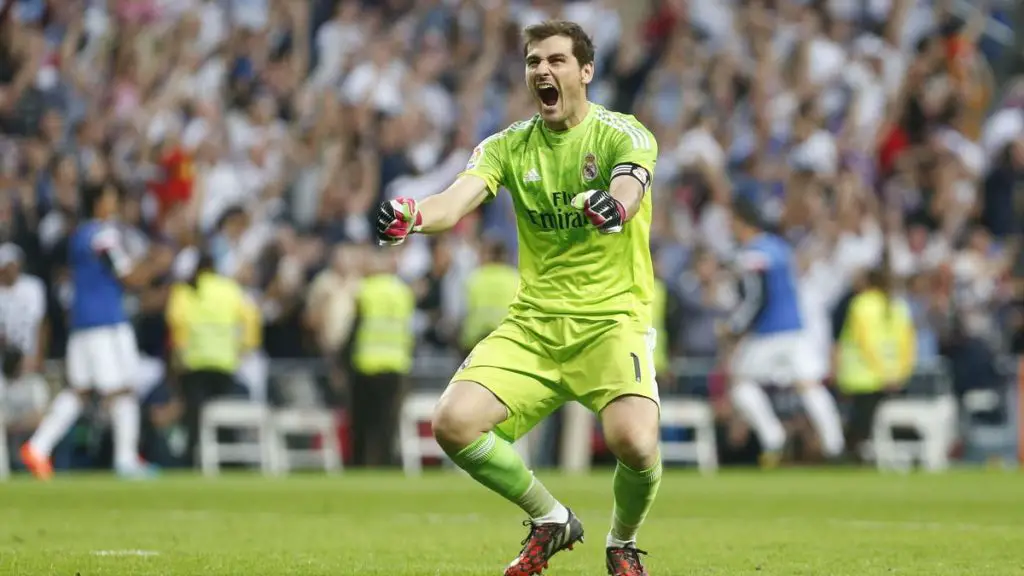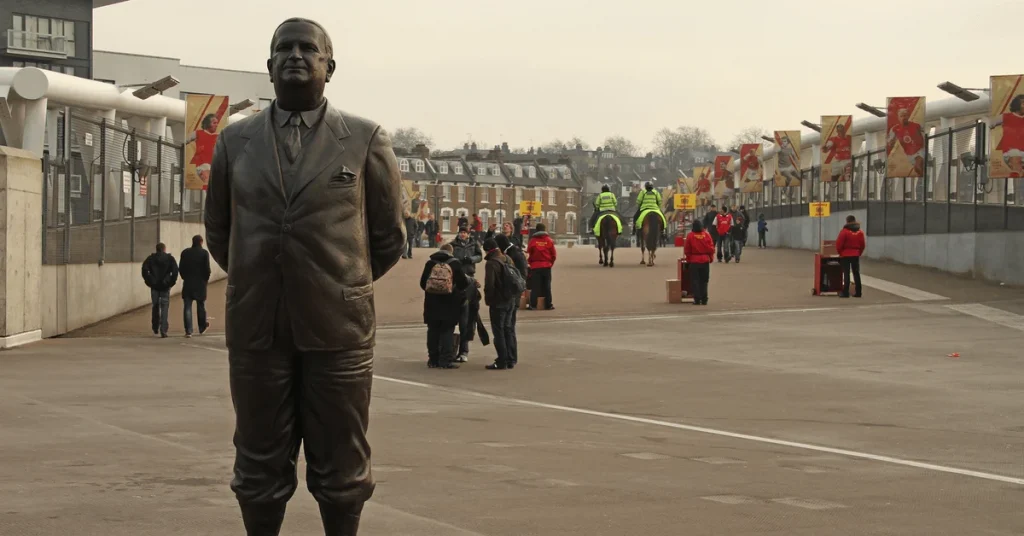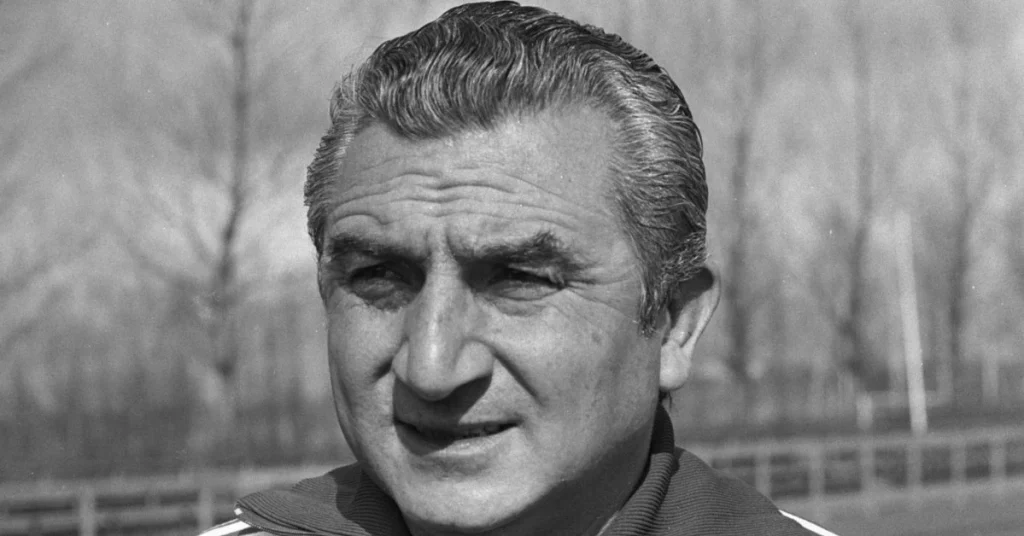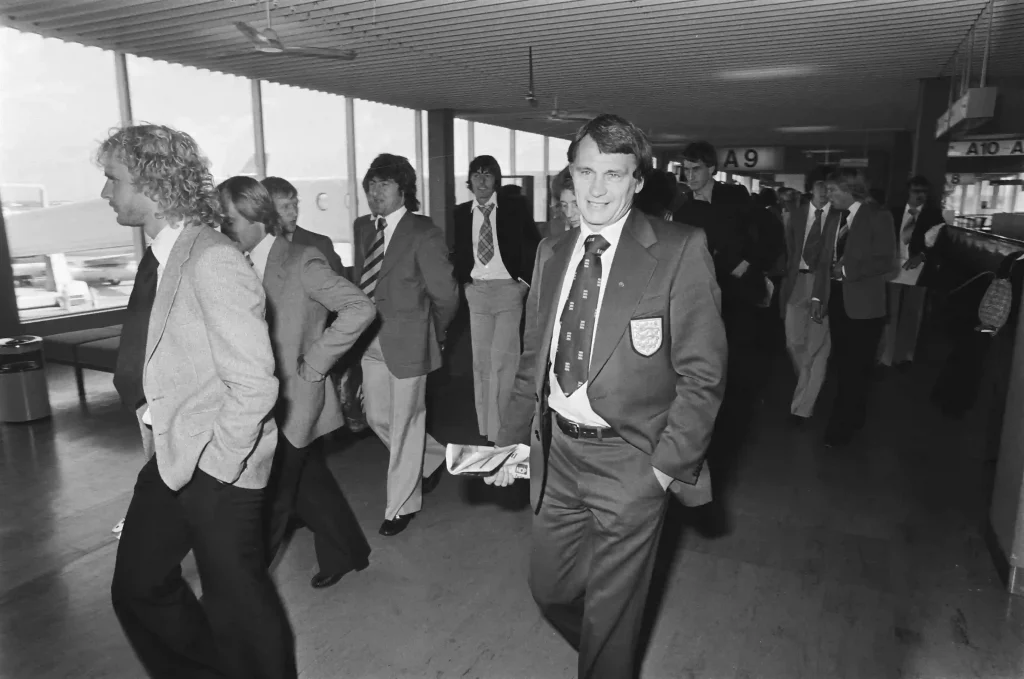It’s fair to say that in the annals of football history, goalkeepers often get forgotten. How many clubs can you think of where their most celebrated player plied his trade between the sticks?
Even at Stoke, a side with far fewer legendary players to call upon than Real Madrid, Stanley Mathews is remembered far better than Gordon Banks. I’d even argue that despite Banks being England’s greatest-ever goalkeeper, Most people of my generation would associate Rory Delap with Stoke before the World Cup winner.
So when we look at how well revered Casillas is and was at Real Madrid, you know that he was more than just an elite goalkeeper.
With a smaller stature (for a goalkeeper) standing 6 feet tall, his gameplay was all about lightning-fast reflexes and incredible saves. He was quick off his line and seemed a born leader even in his early days at Real Madrid.
Dubbed ‘San Iker’ for how often he saved Madrid, he is still one of Madrid’s most beloved footballers.
A career that spans 20 years, making his Madrid debut and subsequently holding down the first-choice keeper spot at just 18 years of age, Casillas is among the best players to ever grace Real Madrid’s pitch.
A Costly Childhood
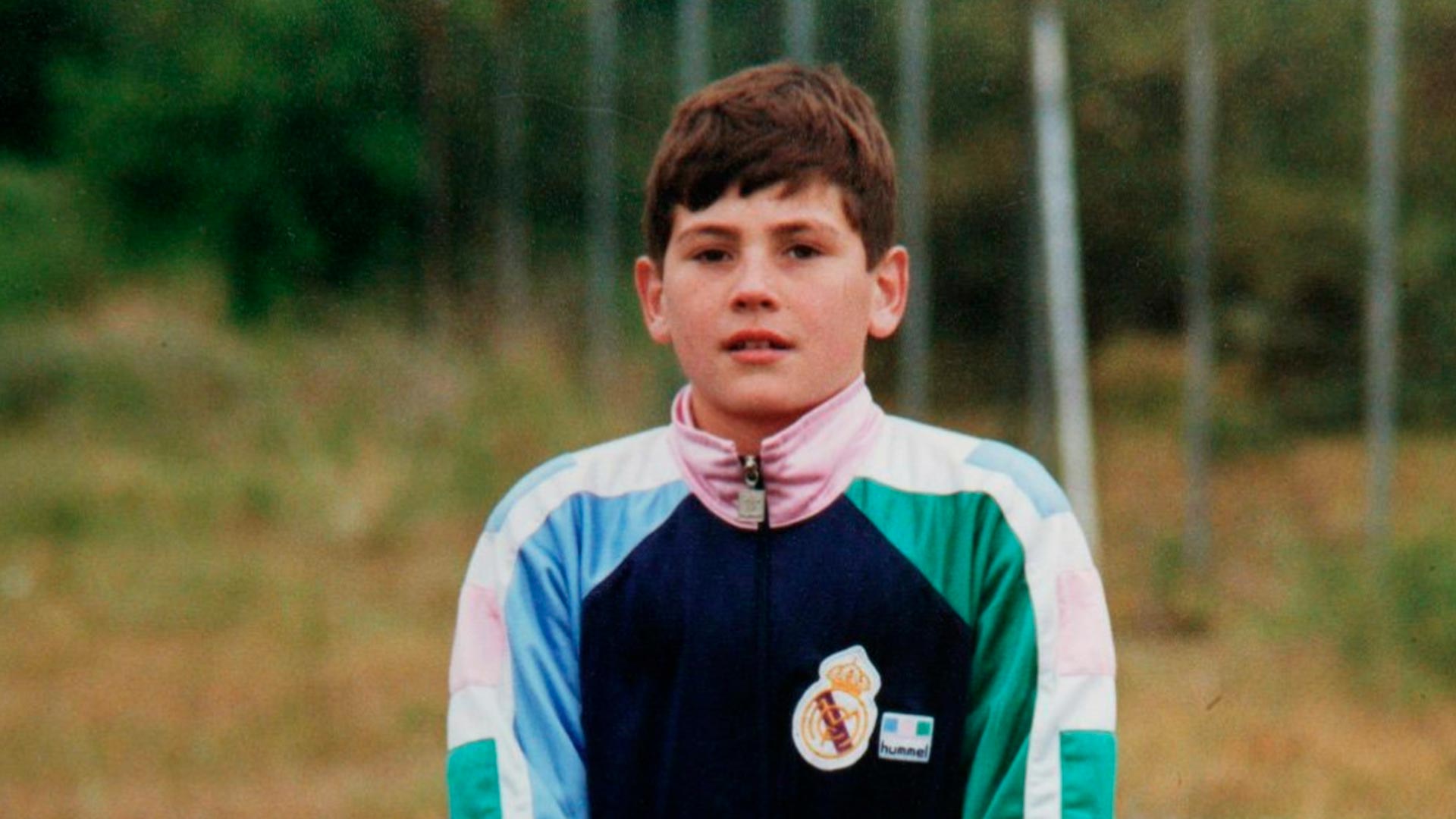
It was a simple, typical childhood, save for a weekend where life could have taken a drastic change for the better were it not for a Casillas blunder.
Each weekend football fans across all of Spain sent in score predictions as part of a million Euro competition. 15 correct score predictions and a lucky Spanish citizen won a life-changing amount of money.
Getting that many correct was almost impossible, but many played just for that slim chance and extra excitement at the weekend.
Casillas’ father instructed him to post his predictions but Iker forgot, and as fate would have it, his father’s predictions were all correct, leaving the family missing out on 1.2 million Euros.
It was no doubt a stoic atmosphere for a few weeks around the Casillas household, but the family moved on, and Casillas soon proved a hugely promising young goalkeeper.
Casillas was signed for Madrid’s youth academy as a 9-year-old in 1990, a year on from his million Euro mishap. He quickly established himself as the best goalkeeper in the class of 1990, making it into the Real Madrid C team around the time he turned 16.
But, despite only just graduating to the C team, Casillas was called up to the senior squad on the 27th of November 1997 to face Rosenborg in the UEFA Champions League, although he remained on the bench throughout, to just be called up as a goalkeeper at such a young age is a feat yet to be repeated a club anywhere near Real Madrid’s size.
After spending a season with the C-team in Spain’s fourth tier, winning their, regional group, he came into contention as the club’s first-choice keeper following impressing in a brief 4-game spell in the second division with the Real Madrid Castilla, the B team, he was moved up to the senior squad to battle for first choice. He was barely 18.
Breaking Into The A-team
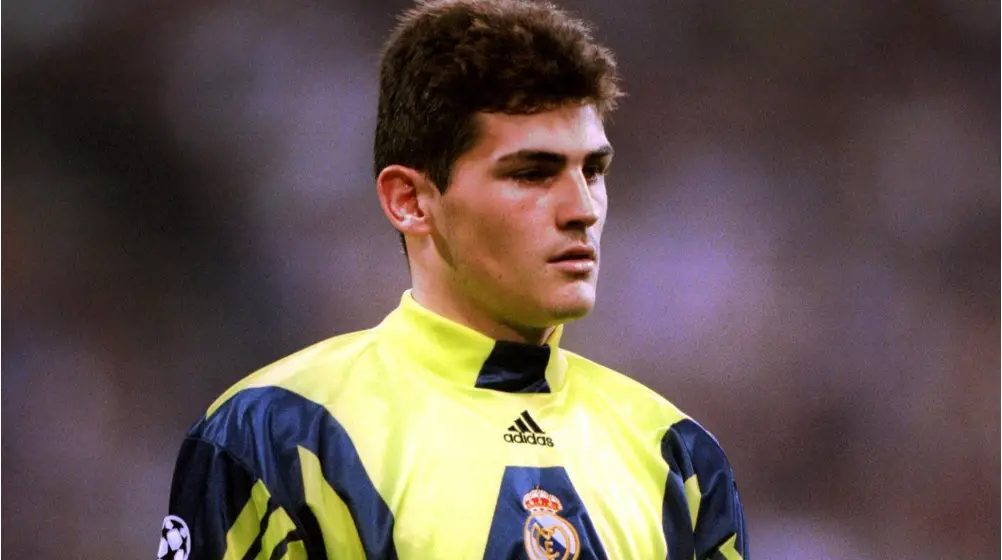
There was a chance to contest the spot between the posts.
Casillas made his La Liga debut in a 2–2 draw against Athletic Bilbao on the 12th of September at the start of the 99-2000 season. It wasn’t a brilliant start to life, the young keeper being beaten by a 35-yard free-kick from Bilbao’s Gurrero, which Casillas set himself poorly for, beaten at his near post by a free kick a more experienced keeper would have certainly saved.
The second Bilbao goal was incredibly unlucky however, a hopeful ball into the box deflected off the first defender, bouncing off the ground and looping over Casillas into the far corner.
There were, however, signs of what was to come, the Spaniard producing a few smart saves to keep the score level and salvage a Madrid point against a Bilbao side that probably deserved all 3 that day.
Three days later, by starting the 1999–2000 UEFA Champions League group stage fixture against Olympiakos he became the youngest goalkeeper ever to feature in the competition aged 18 years and 177 days.
Despite starting the next game, another draw, 1-1 against Deportivo La Coruna who would go on to win their first title that season, Casillas was dropped up until matchday 14, where he’d finally cement his place.
Seizing on an opportunity after the 3rd goalkeeper in contention was dropped after shipping 5 to Zaragoza the prior week, Casillas earned his spot in the team with a solid showing in a 1-1 draw against Racing.
Madrid then won their next 4 games, Casillas playing every won, and conceding just once each game. The 18-year-old was clearly the best keeper at the club, his 4 game run building his confidence.
His first clean sheet for the senior side came the next game against relegation battler Numancia. His outfield players sadly disappointed as they failed to find a winner, the game ending 0-0.
He went on to concede just 25 times in 27 games in La Liga alone, registering 10 clean sheets, a record a seasoned world-class goalkeeper would be pleased with.
Things would get even better still that season…
A Record Yet To Be Beaten
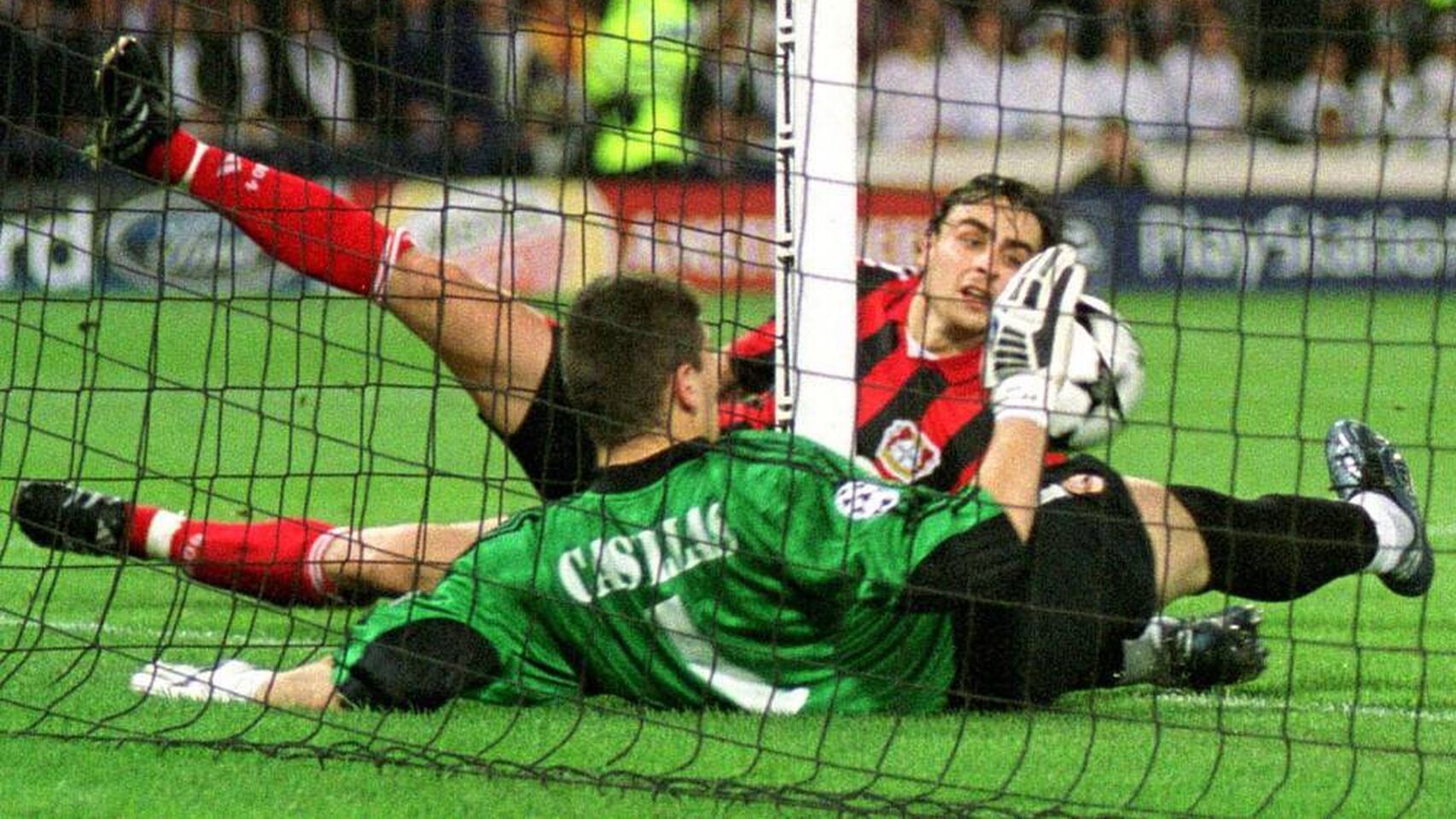
The next year, he played 34 league games, conceding 37, and keeping 12 clean sheets, doing enough to help Madrid to a La Liga title.
A national team debut soon followed, coming on to play 27 minutes against Sweden in a friendly.
He was already one of the league’s best goalkeepers at 20 years old, but for all his momentum, he faced a major setback the next year.
After playing all but one of 27 league games in the 01-02 season, Casillas was dropped following a spell of 2 wins in 7 games, putting Madrid firmly out of title contention.
The whole team had played poorly, but Casillas was the one who shouldered the blame of manager Vincent Del Bosque, as Iker was benched after a 3-1 win over Deportivo Alaves.
It was a little harsh on the man, but backup César Sánchez was called into action for the remainder of the season. Sanchez conceded 14 in his 10-game run up to the final day, while Casillas had only let 11 in his last 10 games before being dropped.
In the Champions League, he’d also lost his place, up until he redeemed himself in breathtaking fashion.
Madrid had made it all the way to the Champions League final and after a famous Zidane volley on the stroke of halftime, were 2-1 up with 22 minutes left to play. Sanchez suffered a major injury, being forced off for now second choice Casillas, who seized his chance to be a hero.
As Leverkusen threw everything at Madrid in search of an equaliser, San Iker pulled off multiple big saves to keep Madrid ahead and hold onto their slender lead.
After a disappointing season, Casillas had thrust himself back into first choice for the next season, kickstarting his momentum into the next year, and regaining the No.1 spot.
A Lucrative Deal In His Prime
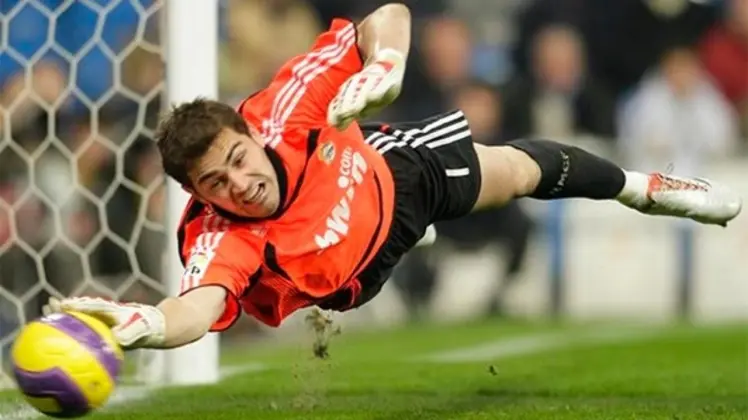
On 14 February 2008, he was essentially awarded a contract for life signing a contract extension that would keep him at the club until 2017, with an automatic extension if he played 30 competitive matches during the final season of the contract.
At this point, he’d conceded just 18 in 23 matches and kept 11 clean sheets, 6 of those 11 coming consecutively.
By the end of that season, Madrid won La Liga again, and Casillas boasted a record of 32 goals conceded in 36 games.
In the 09-10 season, he made one of the saves of his career, scrambling across goal to meet Diego Perotti’s shot. The save drew parallels to the famous Gordon Banks save against Pele, with the Former England shot-stopper going on record to heavily praise Casillas.
Just as incredible, Europa Press reported that Casillas was the second-most popular Spanish sportsman on the Internet in 2010. This was in a period of Spanish footballing dominance, having just won a World Cup.
Casillas went on to break every appearance record for club and country, making 725 appearances for Madrid, conceding 751 and keeping a whopping 264 clean sheets.
For Spain, he was seemingly unbeatable, keeping 102 clean sheets in his 167 caps.
A Tearful Goodbye, Marred By A Sense Of Betrayal

He joined Porto spending his final 4 years before retirement where he showed he was still a different class, conceding just 116 goals in 154 games, with 74 clean sheets, that’s a clean sheet in 48% of games… What a record to end things on.
